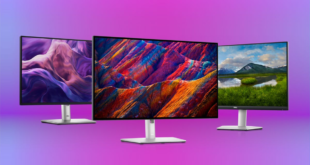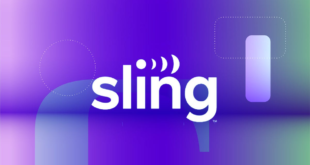Uncertainty is all over the news, with the upcoming presidential election less than 40 days away. That uncertainty can leave you feeling powerless and anxious. It’s understandable; the election is a big event with significant outcomes that will impact policy going forward.
If you’ve been feeling stressed or burned out from the coverage, you’re not alone. According to a poll from the American Psychiatric Association, 73% of Americans said they were anxious about the 2024 U.S. election.
“It’s a big contributor to the overall increase in anxiety we’ve been seeing — 43% of people say they’re more anxious this year than last. The election, along with worries about the economy and gun violence, is really weighing on people,” said Colleen Marshall, MA, LMFT, chief clinical officer at Two Chairs.
I rounded up these expert-approved tips to manage your anxiety while staying informed about what’s going on with the election.
What is election anxiety?
Election anxiety isn’t an official diagnosis. Instead, think of the election as the trigger for increased feelings of anxiety and stress. Various studies have shown that anxiety about the election is significantly up in recent years, from around 40% in 2012 to 52% in 2016, to 68% in 2020 and now to 74% for 2024, according to Dr. Harris Stratyner, a New York psychologist and clinical associate professor at Mount Sinai School of Medicine.
It’s not hard to pinpoint why this increase in anxiety symptoms has happened. From the never-ending uncertainty to negative campaigning to the thought-spirals about “what ifs,” it’s hard to escape the stress of the presidential election.
“Election stress and anxiety can affect anyone. Research shows that election anxiety can affect more of us than people with a diagnosed mental health condition,” said Brandon Graham, director of advocacy for the National Alliance on Mental Illness.
“Close to half of US adults previously reported that politics was a significant source of stress, causing lost sleep, shortened tempers and obsessive thoughts,” Graham added.
It’s normal to experience a range of emotions about the upcoming election. However, when these feelings impede your daily function, it’s important you take action.
How does technology make election anxiety worse?
Gone are the days of limiting media exposure to reading the newspaper with breakfast or turning on the news after work. Thanks to technology, the news cycle is constant with emails, push notifications and social media posts.
The constant stream of opinions and updates can be draining, especially when you’re used to scrolling through your social media accounts and seeing clips from sassy pygmy hippos. You now have to pass all the political posts.
“A big part of it also comes down to the way our current election news ecology functions — with social media amplifying the perceived stakes and flooding people’s attention spaces with overheated political discourse, misinformation and news that can be anxiety-inducing and overwhelming,” explained Stratyner.
Every time I’ve opened up Instagram or Twitter lately, there has been at least one political ad within the first few minutes of scrolling. Sometimes, that makes it easy to put down my phone, while other times, it keeps me going. Doomscrolling can already negatively affect your mental health and sleep, though the election presents the potential for a unique element: misinformation or AI-generated content.
“When you pick up your phone, you’re met with videos featuring the latest out-of-context quote or accounts sharing a prompt that is bound to get folks riled up in the replies. Over time, this purposefully negative content can take its toll on anyone, especially people trying to stay up-to-date and civically engaged,” said Graham.
Social media is a tool that helps us feel connected to others. However, right now, it can also be a source of anxiety, especially if you’re not sure if the content you’re encountering is accurate. That can just add to feelings of powerlessness and emotional exhaustion.
9 ways to take care of your mental health during the upcoming election
According to Graham, election anxiety isn’t something that lasts longterm. Research has shown that associated anxiety and depression lessen days or weeks after the election ends. But that’s still far away; many of us need relief now. I rounded up a list of the top psychologist-approved ways to lessen your anxiety during election season. Remember, these are just suggestions, and you should work to find what works best for you.
Stay in the loop, but set your limits
From promotional flyers stuffed in your mailbox to text messages from your local political offices to commercials on TV, it can be difficult to manage how much election news you’re exposed to.
Some people find that the constant stream of news and notifications can be overwhelming and trigger their anxiety, so they may choose to avoid it entirely. Others may be anxious because they feel out of the loop. Only you can determine how much time and energy you want to devote to election-related content. But once you find your limit, stick to it.
That might mean you only check the news between a set time each day, silence notifications or take a social media break. There is no right or wrong level of exposure; it’s all about setting boundaries that work for you.
Avoid heated conversations
One of the most significant areas of anxiety for many people right now is navigating stressful conversations, particularly if you’re talking to someone with differing opinions. While constructive conversations can be fruitful, there are times when things pass into the territory of unhealthy.
This is another area where you can set boundaries for yourself. “Engaging in stressful conversations about politics, especially with people who hold opposing views, can heighten our anxiety. It’s perfectly okay to set limits on when and with whom we discuss these topics,” Marshall said.
Establishing communication boundaries may also include temporarily blocking or muting certain people or accounts on social media.
Limit social media intake
Even under normal circumstances, social media can negatively affect your mental health if you’re not careful. Studies have shown that dependency on social media can worsen anxiety symptoms and increase feelings of isolation. It can also contribute to feelings of inadequacy and interrupt your sleep cycle.
Social media is also our real-time link to political information being reposted and commented on. No matter where you fall in political leaning, the sometimes emotional political posts, inflammatory rhetoric and confrontational exchanges in comment sections can heighten stress levels, Stratyner explained.
“Some users might feel compelled to engage with political content or may feel socially isolated when their views do not match those of their social circles. They might be subjected to echo chambers that reinforce their political views, deepening political polarization and increasing anxiety over how high the stakes of the election might be,” Stratyner added.
To combat negative feelings, you may opt to silence notifications or limit your scrolling. Alternatively, you can take a complete digital detox. Digital detoxes have also been found to help you sleep better and enhance your focus.
Challenge your thoughts
Marshall explained that challenging your thoughts is another way to manage election anxiety. One of the most stressful things about elections is the potential impact of future policies and rulings on our lives. While this shouldn’t be ignored, that doesn’t mean you have to let the worry consume you.
“If you’re thinking something like, ‘If the candidate I want doesn’t win, everything will be ruined,’ take a step back. Ask yourself if that’s really true. What evidence do you have for or against that belief? Sure, the election outcome might influence policies and dominate the news, but it likely won’t change your daily life — like where you eat, who you hang out with or your job,” Marshall said.
It’s important to remember that the election outcome will not change everything. You still have control.
Don’t forget self-care
When anxiety and depression symptoms spike, it’s easy to let self-care slip, as Marshall explained. “If we’re not taking time to do things that help us relax — whether that’s exercising, meditating or just enjoying a hobby — anxiety can creep up quickly.”
Try adding activities that make you feel good. Maybe that’s deep breathing exercises or meditation, or perhaps it’s a creative hobby that helps you de-stress. Alternatively, it could be grabbing dinner with your friend or walking in nature. Whatever you choose, make it a habit to focus on relaxation daily to prioritize your mental health.
Read more: 9 Natural Remedies for Soothing Anxiety Without Medication
Get good sleep
Your sleep habits and mental health are more related than you might expect. There are essential brain functions that happen while we’re sleeping, like removing toxins, processing what we learn and facilitating communication between brain cells. If you don’t give your brain a chance to do them, your mental health will suffer.
Spiking anxiety triggers the autonomic nervous system to release cortisol to protect us, which keeps us awake and makes anxiety symptoms even worse. Quality sleep can help lessen anxiety by dropping stress hormone levels and helps decrease undesired emotional responses to average stimuli.
Sometimes, it can feel like a catch-22. You need to sleep to lessen how anxious you feel, but sometimes, it’s the biological response to anxiety that keeps you up. Luckily, there are a few things you can do to prioritize sleep. Start by making a nighttime routine that you stick to each night, including a consistent bedtime. You may also try using a meditation app or weighted blanket to drift off more easily.
Read more: The Cognitive Shuffle Method: A New Sleep Hack to Conquer Late-Night Anxiety
Exercise
Exercise is one of the simplest ways to reduce anxiety and boost happiness. When we exercise, our brains are flooded with endorphins. It’s often called a “runner’s high” and can improve your mood quickly. Regular exercise can also lower depression and anxiety symptoms, increase self-esteem and improve self-confidence.
Don’t worry if you’re not a gym fan. You don’t have to engage in intense training sessions if that doesn’t suit you. Choose an exercise you enjoy.
Several forms of exercise can benefit your mental health. They include but are not limited to:
- Walking
- Dancing
- Running
- Yoga
- Strength training
Take action
Election anxiety can stem from the discomfort of not being in control. One of the easiest ways to combat those feelings is to take action in parts of your life that you do have control over.
“Many of us — me included — can be better about putting my phone away instead of doomscrolling through the news. Consider doing things that make you feel connected to your values and community, like volunteering your time or learning a new skill,” said Graham.
Whether you join a dancing class or volunteer in your community, choosing to do something will help you regain control over your feelings.
Show yourself compassion and seek help when you need it
Finally, it’s important to be kind to yourself. You’re not the only one feeling this way, and it’s okay to be open about it. Talking to your friends and family about it can offer relief and help you all establish boundaries.
Sometimes, that’s not enough, and you must seek professional help.
If you don’t have an established therapist, start by asking your primary care provider for a referral. Alternatively, you can speak to licensed professionals virtually through online therapy services like Talkspace. Online therapy options tend to be cheaper and more flexible since you can take your appointments anywhere.
If you’re in immediate need, use these resources:
Too long; didn’t read?
Many of us are feeling more anxious and stressed than usual because of the election. While you can’t avoid the election coverage, it’s important to be mindful of how our habits inform how we feel.
Check in with yourself each day to note how you’re feeling. If you feel your anxiety creeping up, revisit your boundaries and see what changes need to be made. You’re not alone, and you should feel empowered to seek help when you need it.
 meganwoolsey Home
meganwoolsey Home



